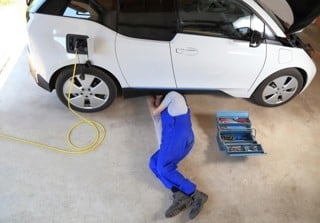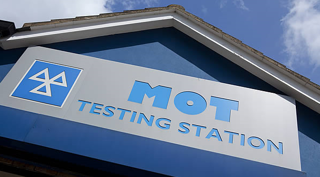The Institute of the Motor Industry (IMI) has warned of a 106,000 shortfall in technicians in the UK that need to be advanced driver assistance systems (ADAS) certified by 2030.
The IMI has looked at the first ever analysis of Level 2 autonomy (the ability to control both steering and accelerating/decelerating) in UK car parc and there are currently only 3,000 technicians that are ADAS-certified yet.
The new report - Meeting the Demand for Skilled Vehicle Technicians in the Age of ADAS, issues a stark warning, by saying that the lack of skills to work on ADAS is putting road users at risk and undermining UK mobility.
Steve Nash, IMI chief executive, said: “Drivers are becoming accustomed to and reliant upon autonomous features on their vehicles.
“Any failure could be catastrophic. For example, if a driver took a second too long to notice that their adaptive cruise control had failed on a motorway they could easily suffer a serious high-speed collision with the vehicle in front.
“It would be a similar story if Lane Keeping Assist or the Lane Departure Warning failed and a driver drifted into the neighbouring lane in front of a faster vehicle. The risks could be even higher for more advanced features such as Autosteer and Automated Lane Change.
“It is no exaggeration to say that it is a matter of life and death that these technologically advanced vehicles are maintained only by fully qualified technicians.”
Accident repair, body and glazing subsectors ahead of the game
While the IMI’s report highlights a big skills gap across the whole automotive aftermarket, there are several subsectors that are more advanced.
In particular the accident repair, body and glazing sectors have a greater proportion of their workforce qualified to work with ADAS because of the critical role they play in repairing vehicles after accidents.
But there is still a gap in qualified technicians to service the current car parc.
This sector, which comprises a large number of independent repair shops, as well as dealership networks and large, multi-site repair organisations have invested in the latest tools and technologies as well as training for their workforce in order to remain competitive.
The IMI estimates that there are currently 1,800 technicians ADAS qualified in these subsectors with a requirement for 25,000 technicians ADAS qualified by 2030.
Nash added: “Autonomous vehicles rely on complex systems, including advanced electronics, sensors and software.
“Without the necessary skills to diagnose and fix issues with autonomous systems, the safety and reliability of the vehicles cannot be guaranteed.
“Not only that, the increasing integration of autonomous technology in vehicles means that technicians need to have a deep understanding of how different systems interact and work together, requiring a commitment to continuing professional development to keep up with the latest advancements in the field.”






















Login to comment
Comments
No comments have been made yet.